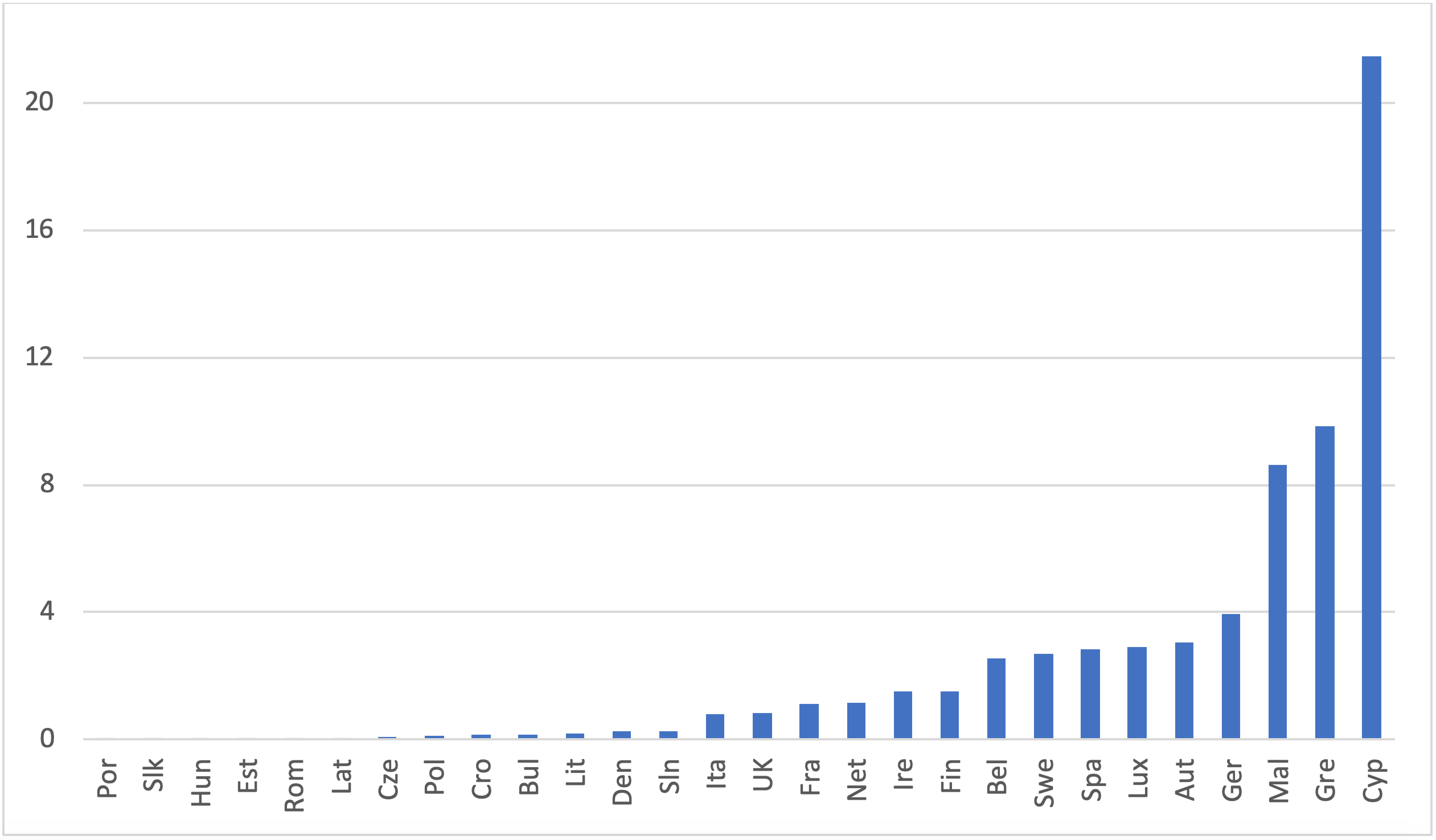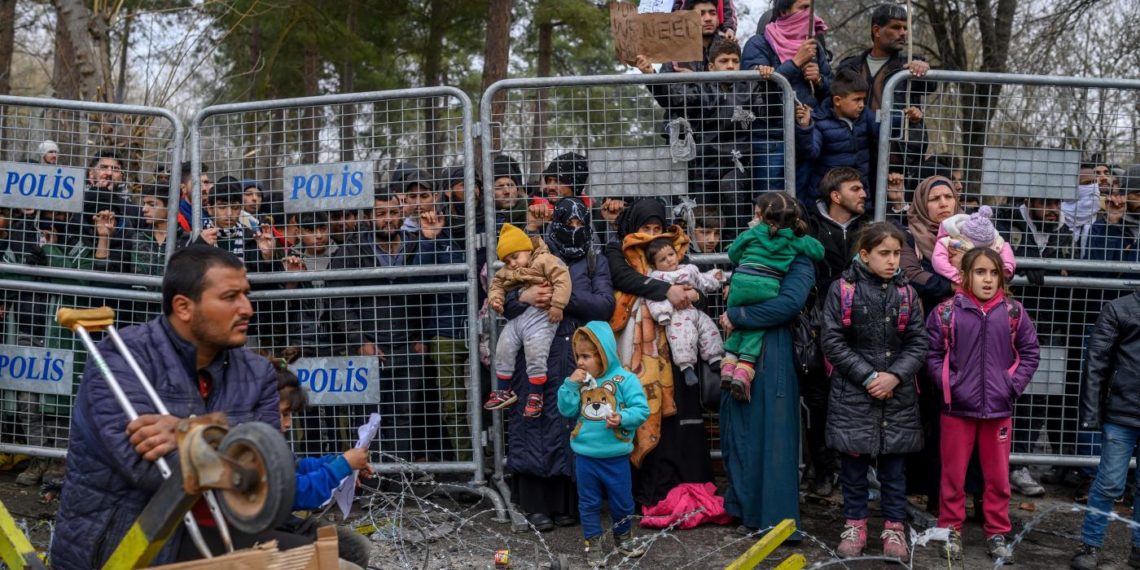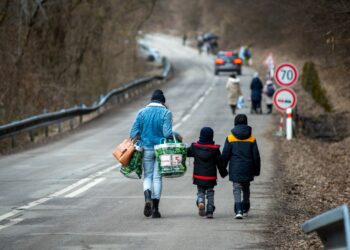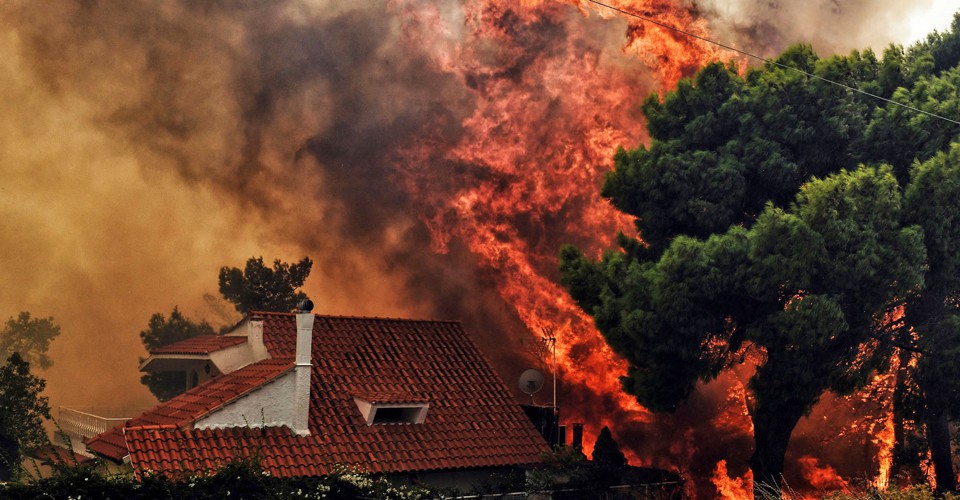Some three weeks ago, Turkish President Recep Tayyip Erdogan announced he would no longer stop asylum seekers from attempting to enter the European Union. Greece responded by announcing a suspension of the consideration of any asylum claims from irregular entrants.
The results have been terrible. Tens of thousands are stuck at the land border, Greek border guards have resorted to tear gas and water cannons, and there has been a marked increase in local aggression against migrants and even aid workers.
While dramatic, these developments are illustrative of a wider reality, namely that the Mediterranean asylum crisis is far from over. As long as millions of people are displaced in Turkey and the violence in the region continues, there will be no end to the stream of individuals who try to find residence in Europe.
And since the E.U.’s approach – discouraging new arrivals, relying on the assistance of Turkey, and hoping for more solidarity among its member states – proves ineffective, there is little hope for improvement any time soon.
Too Easy to Put All Blame on Turkey
The actions of the Turkish and Greek governments have been widely criticized, and rightly so. But it would be dangerous to lose sight of the broader picture. Erdogan’s aide Ibrahim Kalin was not wrong when he commented that “for many European countries their approach seems to be that as long as [asylum seekers] don’t come our way, they don’t come to our cities, it’s somebody else’s problem.”
And it is similarly difficult to disagree with Greece’s position that it is overwhelmed. Greece reported more than 100,000 pending asylum applications at the end of last year, which is unsurprising considering it saw a fortyfold (!) increase in the number of asylum seekers over the previous two decades.
In short, some of the blame must be directed at the E.U. itself, and more specifically, at the way it has attempted to handle the asylum crisis since its inception. Its approach seems to rely on three questionable components.
Discouraging the Desperate
First, central to Brussels’ efforts has been the attempt to curb the arrival of new claimants, with limited success. Despite intensified control of land and sea borders, and repeated statements by officials that irregular attempts of migration are in vain, the E.U. has not seen the decrease in applicants it hoped.
When one considers the motivations to seek asylum, this is not surprising. Border patrol initiatives, let alone public announcements, are unlikely to deter people who are knowingly risking their lives. Indeed, in 2019 the number of asylum applicants to the E.U. was higher than the year before (roughly 720,000, compared to only 650,000 in 2018), and the inflow is nowhere close to where it was before the start of the Syrian civil war (roughly 260,000 in 2010).

International Organization for Migration data on irregular entrants, on the other hand, do show a steady annual decrease (from 390,000 in 2016 to only 129,000 in 2019), but recent developments have made it doubtful we can rely on this trend to continue.
In the first three days after Erdogan’s announcement, already close to 2,000 irregular entrants found their way into Europe.
Relying on Erdogan
Probably most remarkable about Brussels’ response to the asylum crisis was the deal it struck with the Turkish government in March 2016: the E.U. would be allowed to send all irregular entrants back to Turkey, and in exchange, Turkey would see financial aid, the loosening of visa restrictions, and the promise of future negotiations about accession to the European Union.
The agreement certainly led to a decrease in asylum applicants and was widely praised by European politicians. But it can hardly be considered a long-term solution. The refugee population in Turkey now numbers more than 3.7 million, and for months President Erdogan has been using the threat of letting them travel to the E.U. to demand more aid for his military efforts.
By pushing the migration problem beyond its borders, the EU has allowed authoritarian countries like Turkey to use migrants as leverage to win diplomatic concessions, Ruben Andersson and David Keen write.https://t.co/AVH1seTAhC
— Foreign Policy (@ForeignPolicy) November 24, 2019
Of course, one can argue that the E.U. has not lived up to its end of the deal, but the timing of Erdogan’s announcement (directly after a military defeat against Syrian rebels in the Idlib province), not to mention his disregard for the plight of innocent people who try to escape Idlib, leaves little doubt that he is more than willing to use the accommodation of refugees as leverage in negotiations with Brussels.
The continued reliance on an increasingly authoritarian regime to solve a humanitarian crisis is, therefore, not only questionable on moral grounds but also risky in more strategic terms.
Hoping for Solidarity
Finally, while E.U. chief Ursula von der Leyen was quick to express solidarity with Greece, the lack of E.U. unity on migration issues is painfully obvious. A union-wide solution – which the E.U. ostentatiously favors – remains largely aspirational.
While some member states’ governments are willing to contribute to cooperative solutions (for example, Finland, France, Germany, Luxembourg, and Portugal agreed to take in children who were stuck at the Greek-Turkish border), others are staunchly resistant.
Only one country (Luxembourg) adhered to a quota scheme designed to distribute refugees according to each member state’s size and economic strength, and outwardly Eurosceptic and immigration-skeptic governments in Bulgaria, Latvia, Hungary, and Poland continue to refuse taking part in any pan-European policy response.
Data on pending asylum claims clearly show how unevenly the burden is shared. Relative to the size of the population, at the end of 2019, Greece had 10 times as many pending claims as the United Kingdom, 40 times as many as Denmark, and 400 times as many as Hungary.

On March 2, Greek Prime Minister Kyriakos Mitsotakis commented that the only structural solutions would be “either a diplomatic intervention to smooth the Syrian crisis in Idlib… or a decision of asylum seeker burden-sharing among E.U. member states.” Afterward, he immediately added that “the first is challenging, the second seems even more so.”
It is difficult to overstate the importance of these comments. They show that contrary to what politicians in Europe might want to believe, the asylum crisis is far from over. As long as violence in the region continues, and refugees are accommodated in uncertain conditions, believing anything else is self-deception.
Disclaimer: The views and opinions expressed here are those of the author and do not necessarily reflect the editorial position of The Globe Post.






















